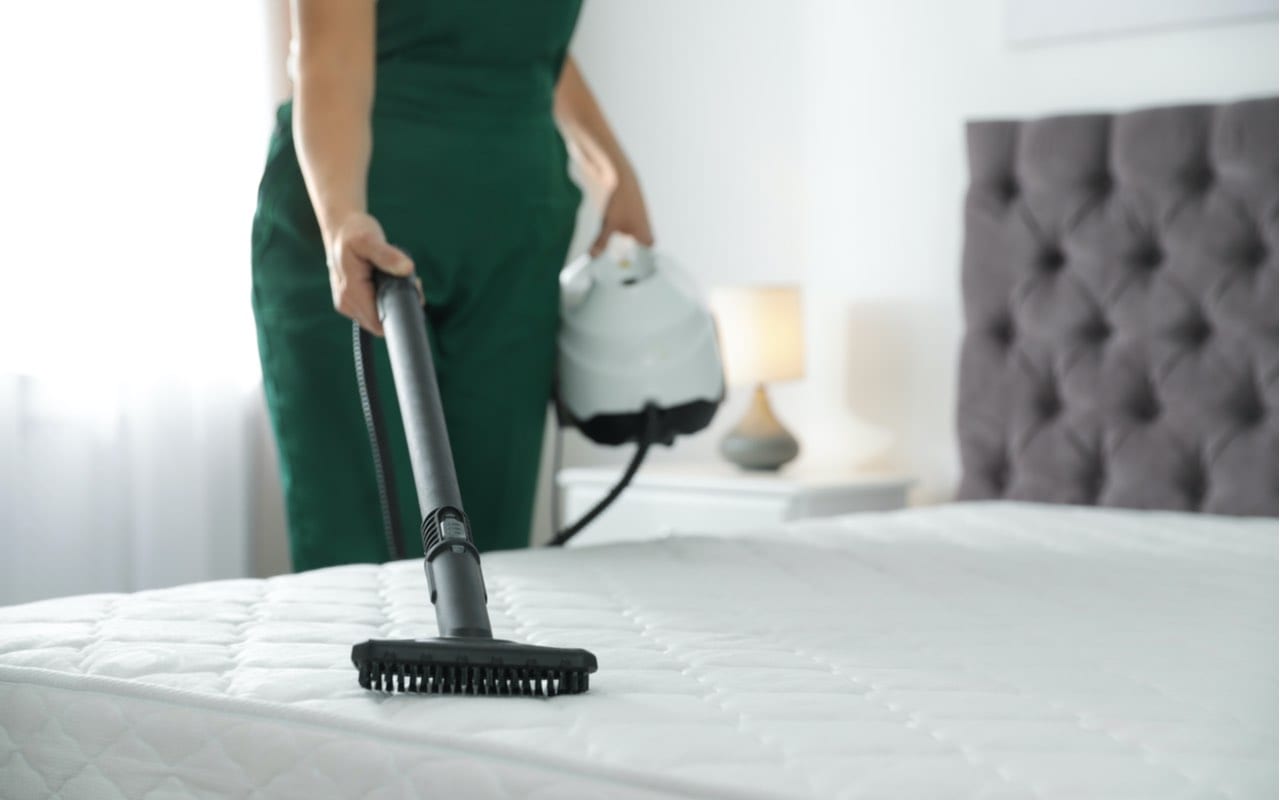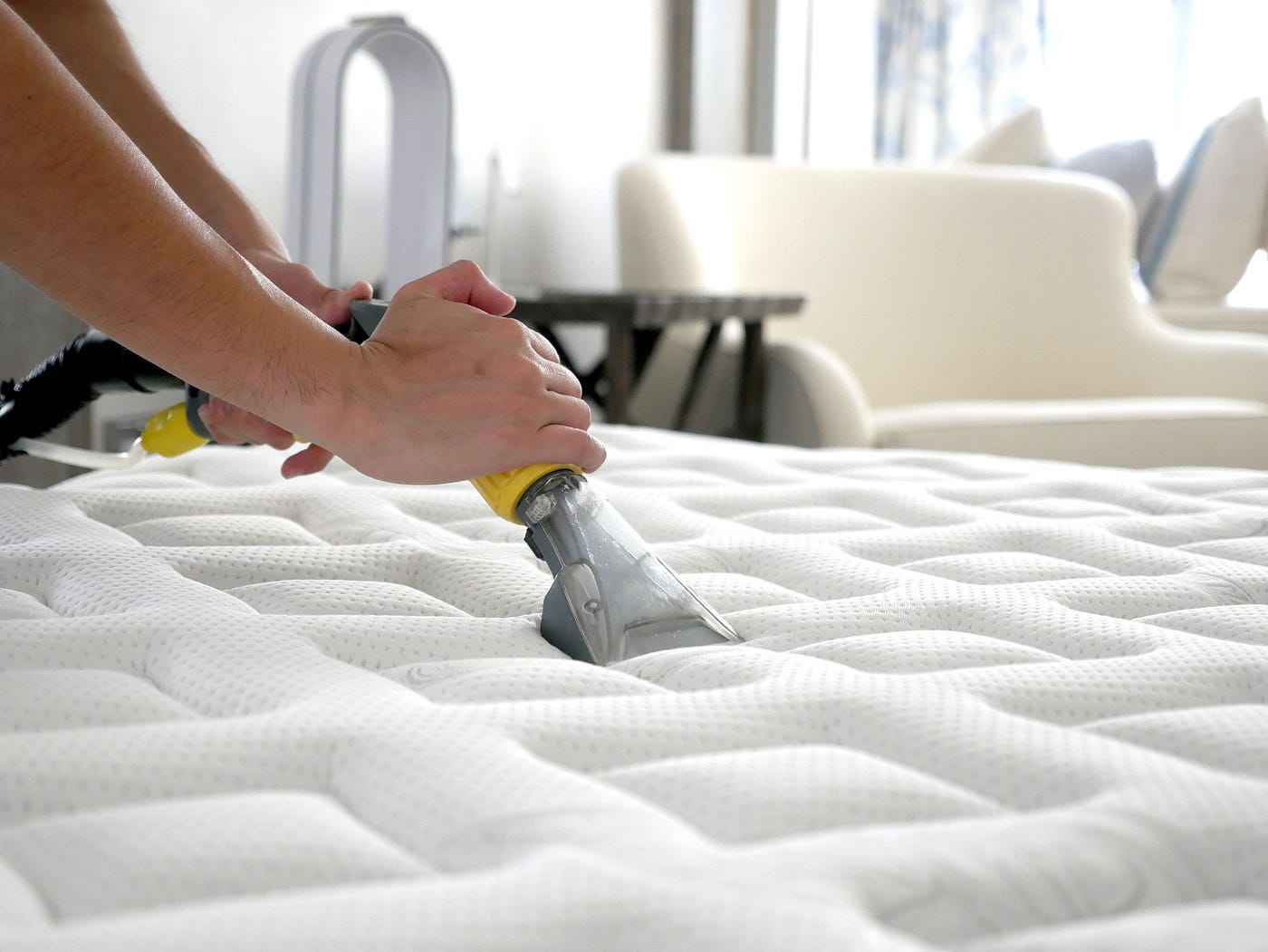Your mattress is an investment in your health and well-being, providing you with comfort and support each night as you rest. However, mattresses often become a haven for dust mites, sweat stains, spills, and allergens over time. If left untreated, these can impact not only your mattress's lifespan but also your overall sleep quality. That’s why knowing how to clean a mattress is essential for maintaining a clean, hygienic, and comfortable sleeping environment.
Cleaning a mattress may seem like a daunting task, but it doesn’t have to be. With the right techniques and tools, you can easily tackle even the worst stains and odors. Plus, regular cleaning can significantly improve the air quality in your bedroom, reduce allergies, and extend the life of your mattress. Whether you're dealing with an accidental spill, a persistent smell, or just routine maintenance, we've got you covered with a step-by-step guide to ensure your mattress stays fresh and clean.
In this comprehensive article, we’ll walk you through the best methods and tips for how to clean a mattress, explore the common causes of mattress stains, and answer some of the most frequently asked questions about mattress care. Dive in and discover how to keep your mattress in pristine condition for a better night’s sleep.
Table of Contents
- Why Cleaning Your Mattress Is Important
- What Are the Common Causes of Mattress Stains?
- How Often Should You Clean Your Mattress?
- What Supplies Do You Need to Clean a Mattress?
- Step-by-Step Guide: How to Clean a Mattress
- How to Handle Special Types of Stains?
- Can You Use a Steam Cleaner on a Mattress?
- How to Protect Your Mattress from Future Stains?
- How to Clean a Memory Foam Mattress
- How to Clean a Mattress Topper
- Why Does Your Mattress Smell and How to Fix It?
- How to Maintain a Clean Mattress Long-Term
- Frequently Asked Questions
- Conclusion
Why Cleaning Your Mattress Is Important
When was the last time you cleaned your mattress? If you can’t remember, it’s probably overdue for a good cleaning. Mattresses accumulate a surprising amount of dirt, sweat, dead skin cells, and allergens over time. This buildup can lead to several health concerns, including allergies, respiratory issues, and skin irritations.
Beyond health concerns, cleaning your mattress is a great way to extend its lifespan. A clean mattress is less likely to degrade due to bacteria, mold, or mildew. Moreover, a fresh mattress improves the quality of your sleep by eliminating odors and providing a more pleasant sleeping environment.
Investing time in cleaning your mattress also saves you money in the long run. A well-maintained mattress will last longer, reducing the need for costly replacements. It's a small effort that yields significant benefits for your health, comfort, and wallet.
What Are the Common Causes of Mattress Stains?
Mattresses can become stained for a variety of reasons. Understanding the common causes of these stains can help you prevent them and clean them more effectively when they occur. Here are some of the most frequent culprits:
- Body Fluids: Sweat, saliva, urine, and blood are some of the most common sources of mattress stains.
- Spills: Coffee, tea, wine, and juice can leave unsightly marks if not cleaned promptly.
- Food Crumbs: Eating in bed can lead to grease or food stains.
- Pet Accidents: Pets can introduce urine, vomit, or fur-related stains.
- Mold and Mildew: Excess moisture or poor ventilation can lead to mold growth on your mattress.
Identifying the type of stain is crucial because each requires a slightly different cleaning approach. For example, protein-based stains like blood or sweat need different treatment than oil or grease stains.
How Often Should You Clean Your Mattress?
The frequency of mattress cleaning largely depends on how you use and maintain it. However, as a general rule of thumb, you should aim to deep clean your mattress every six months. Here’s a more detailed breakdown:
- Daily: Air out your mattress by pulling back the covers for 20-30 minutes to release trapped moisture.
- Weekly: Wash your bed linens and vacuum the surface of your mattress to remove dust and allergens.
- Bi-Annually: Perform a deep clean, including stain removal and deodorizing.
If you have allergies, pets, or small children, you may need to clean your mattress more frequently to ensure a hygienic sleeping environment.
What Supplies Do You Need to Clean a Mattress?
Before starting the cleaning process, it’s essential to gather all the necessary supplies. Having the right tools on hand can make the job quicker and more effective. Here’s what you’ll need:
- Vacuum cleaner with upholstery attachment
- Baking soda
- White vinegar
- Hydrogen peroxide
- Dish soap or laundry detergent
- Soft-bristled brush
- Clean cloths or sponges
- Spray bottle
- Enzyme cleaner (optional, for tough stains)
Once you have these supplies ready, you’re all set to tackle any cleaning challenge your mattress might present.
Step-by-Step Guide: How to Clean a Mattress
Vacuuming Your Mattress
The first step in cleaning any mattress is vacuuming. This helps remove loose debris, dust, and allergens from the surface. Use a vacuum cleaner with an upholstery attachment to avoid damaging the fabric. Pay special attention to seams, crevices, and edges where dirt tends to accumulate.
Removing Stains Effectively
Stains are best treated as soon as they occur. Different stains require different solutions. For example:
- Protein-Based Stains: Use a mixture of cold water and mild detergent. Avoid hot water as it can set the stain.
- Oil-Based Stains: Sprinkle baking soda to absorb the oil, then vacuum and treat with a mild cleaner.
- General Stains: Apply a solution of white vinegar and water, then blot with a clean cloth.
Neutralizing Odors
Sprinkle a generous amount of baking soda over the entire surface of the mattress. Let it sit for at least 15 minutes (or overnight for better results). Then, vacuum it up. Baking soda is a natural odor neutralizer that works wonders on lingering smells.
Sanitizing Your Mattress
To kill bacteria and allergens, lightly spray the mattress with a solution of water and hydrogen peroxide. Allow it to air dry completely before putting on fresh sheets.
How to Handle Special Types of Stains?
Some stains require extra care. For example, blood stains can be treated with hydrogen peroxide, while urine stains respond well to enzymatic cleaners. Always blot and never rub stains to avoid spreading them.
Can You Use a Steam Cleaner on a Mattress?
Yes, but with caution! Steam cleaning is effective for killing dust mites and bacteria, but excessive moisture can damage your mattress. Use a steam cleaner sparingly and allow the mattress to dry completely before use.
How to Protect Your Mattress from Future Stains?
- Use a waterproof mattress protector.
- Avoid eating or drinking in bed.
- Keep pets off the mattress.
Prevention is always easier than cleaning, so take steps to minimize the risk of stains.
How to Clean a Memory Foam Mattress
Memory foam mattresses require special care because they are sensitive to moisture. Use a small amount of cleaner and avoid saturating the foam. Always air dry thoroughly before use.
How to Clean a Mattress Topper
Mattress toppers can often be removed and machine washed. For those that aren’t machine washable, spot clean using a mild detergent and water solution.
Why Does Your Mattress Smell and How to Fix It?
Odors are often caused by sweat, spills, or poor ventilation. Regular cleaning and deodorizing with baking soda can help eliminate smells. Ensure your mattress is well-ventilated to prevent future odors.
How to Maintain a Clean Mattress Long-Term
Rotate your mattress every 3-6 months to prevent uneven wear. Wash bedding weekly and vacuum the mattress regularly. These habits will keep your mattress clean and fresh for years to come.
Frequently Asked Questions
1. How can I remove old stains from my mattress?
Old stains may require multiple treatments with an enzyme cleaner or hydrogen peroxide solution. Be patient and repeat the process until the stain fades.
2. Can I clean a mattress with household items?
Yes, common household items like baking soda, vinegar, and dish soap are effective for cleaning mattresses.
3. How long does it take for a mattress to dry after cleaning?
It depends on the cleaning method used, but typically, it takes 6-8 hours. Use fans or open windows to speed up drying.
4. Is it safe to sleep on the mattress immediately after cleaning?
No, ensure the mattress is completely dry to prevent mold and mildew growth before using it.
5. How do I clean a mattress with bed bugs?
Use a mattress encasement, vacuum thoroughly, and consider professional pest control services for severe infestations.
6. Should I flip my mattress after cleaning?
Only if your mattress is designed to be flipped. Many modern mattresses are single-sided, so check the manufacturer’s guidelines.
Conclusion
Keeping your mattress clean is not just about aesthetics—it’s about your health and quality of sleep. By following the steps outlined in this guide, you’ll ensure your mattress remains a safe, comfortable, and hygienic place to rest. Make mattress cleaning a regular part of your home maintenance routine, and enjoy the benefits of a cleaner, fresher sleep environment.
Article Recommendations
- The Worlds Richest Singers A Comprehensive List
- San Francisco Airport To Carmel The Ultimate Travel Guide
- Essential Information About Renowned Explorer Henry Hudson

